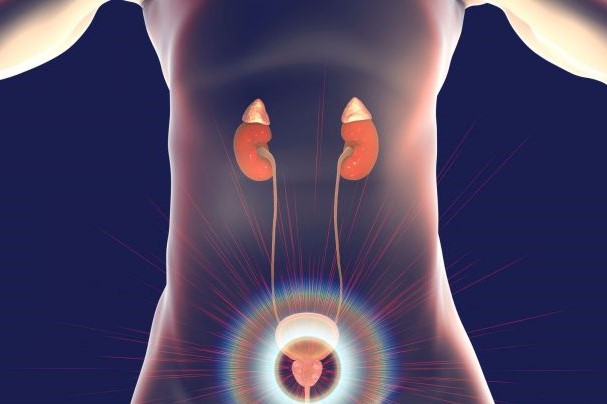
The reasons for prostate cancer
The prostate is an important anatomical structure of a man’s uro-genital system: it is the gland that produces, together with the seminal vesicles, about 80% of the seminal fluid that is normally ejaculated
Characteristics of prostate cancer
Prostate cancer is the most common cancer in men: it accounts for 20% of all cancers diagnosed in men.
Evolution of prostate cancer
Prostate cancer generally has a slow growth and does not present specific symptoms except when it enters more advanced stages of development.
Its evolution is so slow that many men with this disease live normal lives and die from other causes that have nothing to do with this neoplasm, such as a heart attack.
Diagnosis of prostate cancer
In order to set up an effective therapy, it is important to obtain an early diagnosis of the tumour: it is estimated that about 85% of men with prostate cancer arrive at a correct diagnosis early.
- Among the main factors that increase the risk of developing prostate cancer are the following:
- Age: prostate cancer is more frequent after the age of 65 (about 80% of cases found) and is rare before the age of 50 (less than 1% of cases);
- Ethnicity: it is easily found in Western and wealthier countries, while in Asia, Africa and Latin America its incidence is rare.
- Heredity: a family history of prostate cancer doubles the risk of getting the disease;
- Genetics: the presence of the BRCA1 and BRCA2 mutations, which are responsible for ovarian and breast cancer, increases the risk of prostate cancer.
A considerable role is played by lifestyle: diet, habits and particular conditions (smoking, physical activity, weight) affect risk.
In particular:
- unbalanced diets with exaggerated consumption of animal fats, mainly from red meat, cooked at high temperatures; in fact, this cancer is more frequent in countries where meat consumption is daily compared to others where diets based mainly on rice, soya products or other vegetables are used
- hormonal imbalances that can play a negative role, e.g. intake of doping substances and foods very rich in fats, including vegetable fats, which can increase the amount of testosterone, which in turn seems to accelerate the growth of a tumour already present in the gland;
- certain jobs, such as continuous use of welders, producing car batteries, processing tyre rubber or being frequently exposed to Cadmium, seem to increase the likelihood of prostate cancer;
- sedentary life with few interests and little adequate, regular and constant physical activity may be related to prostate cancer; therefore, walking, running and general gymnastic activities are recommended, but also, when possible, taking care of one’s garden or vegetable garden.
Prevention
The precise causes of prostate cancer are not known, which is why prevention can be based mainly on healthy behaviour, starting with a balanced diet rich in fibre, fruit and vegetables with a reduction in animal fats, particularly red meat.
The benefits of tomatoes and of broccoli, cauliflower, cabbage, nuts and coffee should be emphasised.
Added to this is the habit of regular and constant physical activity to keep body weight under control as well.
Positive notes are given by the use of certain drugs, which seem to reduce risks, such as aspirin, finasteride, drugs that lower cholesterol and triglycerides in the blood, and certain non-steroidal anti-inflammatory drugs.
Finally, especially over the age of 40, periodic check-ups with specific prostate tests are advisable.
Read Also
Emergency Live Even More…Live: Download The New Free App Of Your Newspaper For IOS And Android
Prostate Cancer, What Is High-Dose Brachytherapy?
Prostatitis: Symptoms, Causes And Diagnosis
Colour Changes In The Urine: When To Consult A Doctor
Acute Hepatitis And Kidney Injury Due To Energy Drink Consuption: Case Report
Bladder Cancer: Symptoms And Risk Factors
Enlarged Prostate: From Diagnosis To Treatment
Male Pathologies: What Is Varicocele And How To Treat It
Continence Care In UK: NHS Guidelines For Best Practice
The Symptoms, Diagnosis And Treatment Of Bladder Cancer
Fusion Prostate Biopsy: How The Examination Is Performed
How Dangerous Is An Enlarged Prostate?
What Is It And Why Measure Prostate Specific Antigen (PSA)?
Prostatitis: What It Is, How To Diagnose It And How To Treat It
Diagnosis Of Prostate Carcinoma


